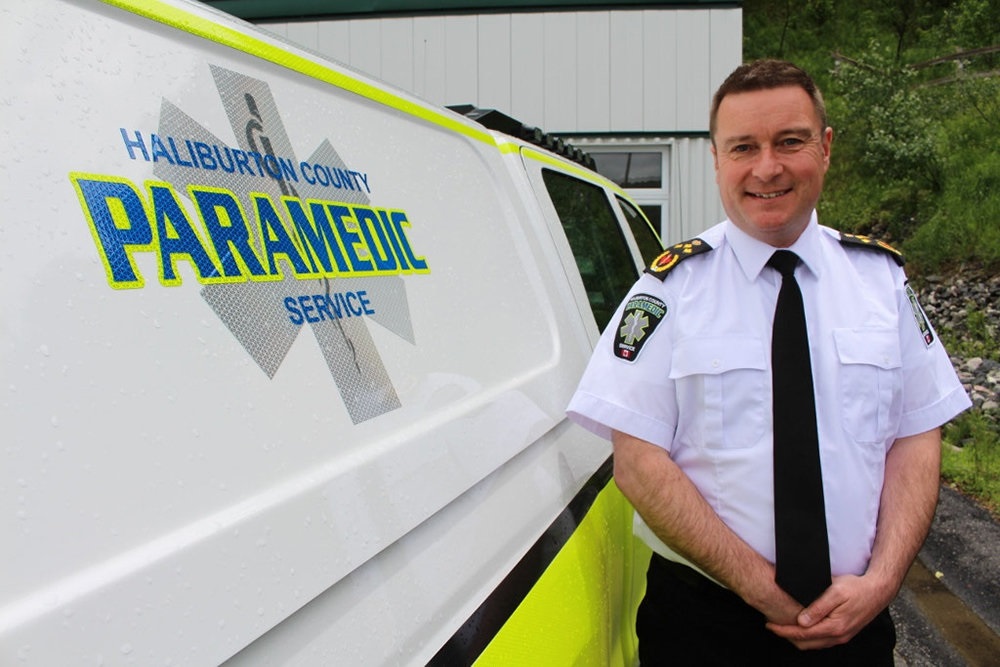An international overdose awareness week event slated for Head Lake Park in Haliburton Aug. 31 is promising “a safe space for community members to remember loved ones who died from overdoses, share stories, provide support and help break the stigma.”
In announcing the 10 a.m. to noon event, the HKPR district health unit said it will also have a flag where individuals can place a pin in honour of a departed loved one to keep their memory alive and wave with pride.
“We encourage everyone to come out and show their solidarity and support,” the health unit said.
The week comes on the heels of the health unit issuing an opioid alert for Haliburton County Aug. 18.
“In this situation, Haliburton EMS notified the health unit about an increase in overdoses involving Fentanyl,” said Cathy MacDonald, the substances and harm reduction coordinator for the health unit. She said their hospital data corroborated the finding, resulting in the alert.
She did say “as is the situation in Haliburton County, the safety of the drug supply can also lead to overdoses. Some ‘street’ drugs are more dangerous and could be contaminated or poisoned, meaning they are more potent and likely to cause severe overdose reactions.”
Asked for local numbers, the health unit said it could not separate out from a region that also includes The City of Kawartha Lakes and Northumberland County.
Department of emergency services director, Tim Waite, said he did not have the exact numbers, however, local EMS usually see a “few” opioid-related incidents but had six to eight ambulance responses for possible opioid overdoses over a two-week period.
Haliburton Highlands OPP added on Aug. 24 that last week, officers attended five overdoses, including one resulting in death.
“So far in 2021, the Haliburton Highlands Detachment have investigated four drug related deaths, which is an increase from the 2020 year, when two drug related deaths were investigated,” they said.
MacDonald said the numbers are trending upwards not only in the HKPR district health unit region, but across the province and country, particularly during COVID.
She said there’d been a “worrying” increase in opioid overdose-related emergency department visits, hospitalizations and deaths in the region since the start of the pandemic.
“In recent weeks, both Cobourg and Haliburton County have seen a rise in overdose incidents,” she said.
She said the regional numbers doubled between April 2020 and March 2021, compared to April 2019 to March 2020.
There had been 208 emergency room visits in 2020, 29 hospitalizations from January to September 2020 and 37 deaths in 2020. “These are more than statistics.
These are real people who are overdosing and dying in our communities,” MacDonald said.
She added, “Let’s remember that overdoses are a health and social issue, and that with increased community awareness and action, we can save lives.”
She attributed the increases to more people using drugs during the pandemic, in part to try to cope with COVID-related challenges such as social isolation, losing a job, poor mental health and concerns or anxiety about the virus. She added people may also be using alone, due to COVID-19 precautions and restrictions.
The event in Head Lake Park is in partnership with PARN, the John Howard Society, Fourcast Addiction Services, local health care providers, Haliburton EMS, and Haliburton Highlands OPP.
“Equally important as preventing overdoses is changing the conversation about substance use. We need to look at substance use as a health and social issue. With increased community awareness, understanding and action towards overdoses, we can save lives. We need to work together, setting aside personal concerns and opinions, and treat people impacted by opioids with compassion and dignity to get to the root of this issue,” MacDonald said.
Safety measures
MacDonald also provided some safety measures, such as: test a small amount of any drug before using; never use alone; if alone, call the National Overdose Response Service virtual safe consumption at 1-888- 668-6677 or practice the buddy system and call a friend; call 9-1-1 in the event of an overdose; keep a naloxone kit on hand. They are available at pharmacies and needle exchange sites; avoid mixing drugs.
If you see someone overdosing, you are also asked to intervene by calling 9-1-1 and giving naloxone, knowing you are protected by the Good Samaritan Drug Overdose Act





